Mark Anthony Neal's Blog, page 575
September 30, 2016
#BackChannel: Kaepernick's Legacy and Watching the OWN Network in the Midst of Anti-Black Violence
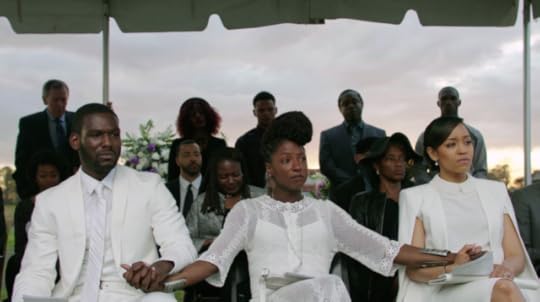 'This season San Francisco 49ers quarterback Colin Kaepernick has knelt during the national anthem in protest against racial inequality. Dozens of athletes have followed in Kaepernick's footsteps. Meanwhile, protests erupted in Charlotte last week after police fatally shot a black man. Against this backdrop, new television shows on the
OWN Network
like Queen Sugar and Greenleaf unpack narratives about contemporary black life. Host Frank Stasio talks with #BackChannel contributors Natalie Bullock Brown, professor of film and broadcast media at St. Augustine's University, and Mark Anthony Neal, professor of African & African American studies at Duke University, about Kaepernick's legacy and how emerging media is reframing narratives about political protests.' --
WUNC--91.5
'This season San Francisco 49ers quarterback Colin Kaepernick has knelt during the national anthem in protest against racial inequality. Dozens of athletes have followed in Kaepernick's footsteps. Meanwhile, protests erupted in Charlotte last week after police fatally shot a black man. Against this backdrop, new television shows on the
OWN Network
like Queen Sugar and Greenleaf unpack narratives about contemporary black life. Host Frank Stasio talks with #BackChannel contributors Natalie Bullock Brown, professor of film and broadcast media at St. Augustine's University, and Mark Anthony Neal, professor of African & African American studies at Duke University, about Kaepernick's legacy and how emerging media is reframing narratives about political protests.' --
WUNC--91.5
Published on September 30, 2016 10:29
#BlackMatters: Lezley McSpadden + Saul Williams + Angela Davis Highlight Inaugural UT-Austin Black Studies Conference
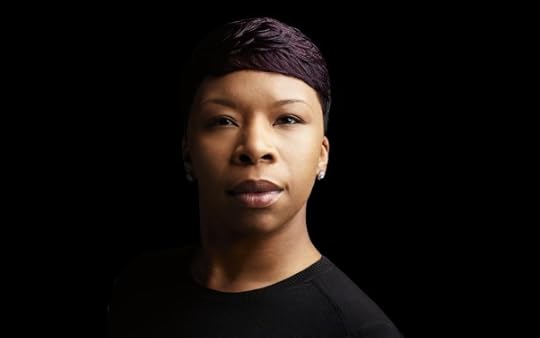 #BlackMatters: Lezley McSpadden + Saul Williams + Angela Davis Highlight Inaugural UT-Austin Black Studies Conferenceby Deborah Douglas | @deadlinedd | special to NewBlackMan (in Exile)
#BlackMatters: Lezley McSpadden + Saul Williams + Angela Davis Highlight Inaugural UT-Austin Black Studies Conferenceby Deborah Douglas | @deadlinedd | special to NewBlackMan (in Exile) “When do I get a chance to defend my son?" Lezley McSpadden asked Thursday during an intimate talk at the start of the University of Texas at Austin’s Matters International Black Studies Conference.
That’s why McSpadden wrote the only version of the story that matters for her son, Michael Brown, so the world would know the real person behind the man-child gunned down by a racist Ferguson, Missouri, cop in 2014: “You don’t know my son’s life and what it meant, and an 18-second video doesn’t tell you anything about 18 years,” McSpadden wrote in Tell The Truth & Shame the Devil: The Life, Legacy and Love of My Son Michael Brown.
“I cried like a baby because I connected to her as the mother of a Black son,” according to UT Austin’s Dr. Lisa Thompson, an author and playwright.” “She was tremendously brave and generous in her remarks. She revealed how much her life has placed her in a position to change the way Black people are treated in the U.S. She’s mourning but somehow able to fight this battle.”
During the two-day conference, Black Studies scholars come to the rescue at a time when scholarly and public conversations about Blackness show the way in academia, grassroots organizing and social policy. Tune into civil rights icon Angela Davis who will give the final keynote address on Friday at 5 p.m., a streamable event.
Topics ranging from Black Lives Matter and anti-Black state violence to conversations with the Black queer diaspora converge in an atmosphere of analysis and action. A panel called “What’s the Matter with Black Education” led by Dr. Keffrelyn Brown challenges discourses that cast Blackness as a problem at time when new research shows even preschool teachers hold biases against Black children.
Musician and spoken word artist Saul Williams told an audience Thursday night he understands the impatience of young people who can clearly see new vision for better social policy that is too slow to come. When he was younger, Williams remembers thinking, “This is taking a long time. It’s not supposed to be like this.” Recalling childhood thoughts about marriage rights, he deadpanned that same-sex marriage was “something I fully understood at the age of 4.”
Art is the answer, he said.
Because art in all its forms has a way of “seducing and engaging” people and creating the ability to harmonize, “it’s a reality people have in common,” Williams told an audience in thrall to his charm and intellect. “A lot of time art can move way faster than policy.”
Though many of the themes discussed are informed by events and phenomena occurring in the United States, UT-Austin’s Black Studies program is notable for emphasizing the African diasporas that include populations from Europe and the Middle East to South America and the Caribbean and beyond.
For example, Dr. Christen Smith offers analysis of anti-Black violence against women in Brazil and Colombia and how they deal with trauma caused by interactions with the police. Where #SayHerName evoked the names and narratives of African-American women befallen by state violence (think: Rekia Boyd, Natasha McKenna or Tanisha Anderson), Smith and has convened a diasporic journey to bring these issues full circle.
“We are taking a global look at the social and political landscape of Black lives in the United States and beyond,” according to organizer Dr. Cherise Smith, associate professor of African and African Diaspora Studies at UT Austin. “We aim to show how critical thinking, scholarly work and grassroots activism intersect in Black Studies.”
Published on September 30, 2016 06:17
September 29, 2016
It Takes More Than Time: A Father Remembers a Child Lost by David J. Leonard
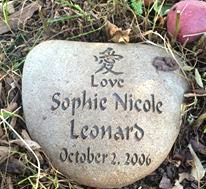 It Takes More Than Time: A Father Remembers a Child Lostby David J. Leonard | @DrDavidJLeonard | NewBlackMan (in Exile)
It Takes More Than Time: A Father Remembers a Child Lostby David J. Leonard | @DrDavidJLeonard | NewBlackMan (in Exile)Ten years ago, we lost our child. We shared less than 1 day together in this world yet she has never left my side.
Over the years, people have continually told me, ‘it takes time,’ or ‘you will heal in time.’ Sadly, this is not my experience. My wounds mark me like a tattoo; the scars have yet to callous with each moment potentially producing anguish that paralyzes all but my tears. In so many ways, I have been broken for ten years.
Ten years after saying goodbye, watching Sophie gasp her last breath, her grasping fingers are no less illusive. Her piercing cries of pain rather than greeting are no less haunting.
Ten years later, a helicopter, what I thought would be our angel of mercy, still triggers anxiety, transporting me back to the moment I arrived at the hospital, her birth, the Code Blue, the transport, the tubes, the “We have done all we can do” and “she’s really sick,” the quiet of a hospital at 3 AM, the rocking chair, and her last breath.
I can still see my Mom’s sinking head as she arrived at the airport. Without words, she knew that Sophie had died as she rushed to be with us. Rather than hold her granddaughter, she was left holding us up while the world came crashing down upon us.
I can still feel the wet pile of Kleenex that littered the backseat - tissues Anna had used while traveling seventy long miles to Spokane children’s hospital. While she lay in a hospital, and I sat by Sophie’s bedside, we were bound by our tears.
Ten years has not rendered these memories any less vivid, debilitating, and painful. Moving forward in life has yet to dull the pain. Almost weekly, any number of medical shows triggers me. The fictitious births, fake doctors, made-up code alerts, and unreal babies dying are no less real to me.
Yet, time has forced me to learn to cope with this anguish; I have learned to go back to sleep when startled out of bed by the vision of her closed eyes. The nightmare is an interruption not an unnavigable rupture. So maybe it does take time but the time is learning how or becoming comfortable with the pain; to live alongside of the nightmare. Time, or more appropriately work, has provided me with the tools in the lifelong challenging of battling these demons.
For so long, I believed healing was about perspective; that my pathway to “being OK” or “becoming myself again” would be an intellectual process. Healing would be about learning and turning this crisis into an opportunity to learn, teach, and engage in work that addresses this all-too common tragedy.
Over these ten years, I learned about infant mortality throughout the world, challenging myself to think about privilege and inequality amid our loss. I researched the effects of While perspective is important, it is also privilege. While necessary to reflect on my own privileges, to think about our loss within a broader world, to use our personal tragedy as a moment of transformation, education, and expansion, perspective has not dulled the pain. No amount of intellectual exploration and theorizing has quelled my tears; it has not muted the screams or dulled the pain. It has helped me learn to live with the pain, tears, and nightmares, to force me to sit with the discomfort, and to use the sadness beyond myself.
I was reminded of the distance traveled over ten years and my stationary place just this week.
“Do you think you would have had three kids,” Sammy, our 9 year-old who was born 1 year and 4 days after his sister, asked.
Knowing where he was going with his question, having feared it for ten years, I hesitated in my response.
“I don’t know, Sammy. Probably not. Why?
“I feel bad,” he said quickly. “I feel bad for Sophie because I replaced her.”
Feeling my heart sink, I hugged him: “I don’t know what would have happened if Sophie didn’t die but I know that you are here. We love you and are grateful for every moment with you.”
We are never able to outrun the past; we are never able to transcend the pain. But we are able to live with the nightmares and the fears, to find joy and happiness even as we sit with anguish.
+++
David J. Leonard is Professor in the Department of Critical Culture, Gender and Race Studies at Washington State University, Pullman. Leonard's latest books include After Artest: The NBA and the Assault on Blackness (SUNY Press), African Americans on Television: Race-ing for Ratings (Praeger Press) co-edited with Lisa Guerrero and Beyond Hate: White Power and Popular Culture with C. Richard King. He is currently working on a book Presumed Innocence: White Mass Shooters in the Era of Trayvon about gun violence in America. You can follow him on Twitter at @drdavidjleonard.
Published on September 29, 2016 08:10
Racial Bias in Preschool
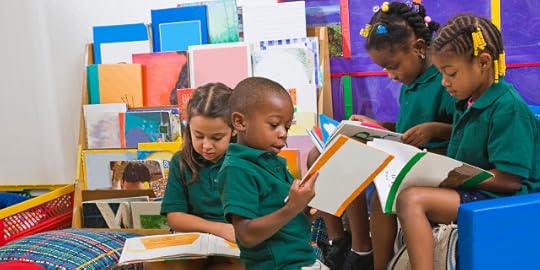 'The effects of racial bias likely start from the moment a kid gets to preschool, according to new data released by the Yale Child Study Center. Researchers tracked the eye movements of classroom teachers to see which students they watched most closely. They used that data and more to reach the conclusion that there is a lot of implicit bias in preschool teaching. Walter Gilliam, professor of child psychiatry at Yale, said, "Our teachers expect black children, and in particular black boys, to misbehave. So they spend a lot more time looking for misbehavior in those children."' -- +Marketplace APM
'The effects of racial bias likely start from the moment a kid gets to preschool, according to new data released by the Yale Child Study Center. Researchers tracked the eye movements of classroom teachers to see which students they watched most closely. They used that data and more to reach the conclusion that there is a lot of implicit bias in preschool teaching. Walter Gilliam, professor of child psychiatry at Yale, said, "Our teachers expect black children, and in particular black boys, to misbehave. So they spend a lot more time looking for misbehavior in those children."' -- +Marketplace APM
Published on September 29, 2016 04:01
September 28, 2016
When the Cost of a College Degree Means a Lifetime of Debt
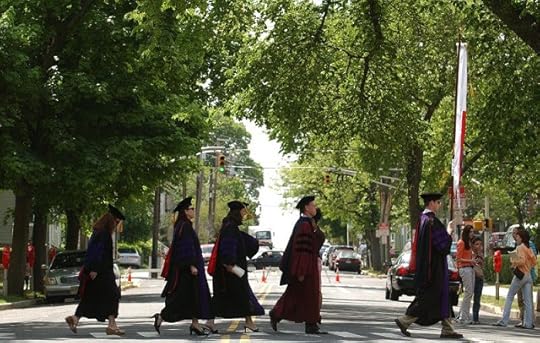 'Sara Goldrick-Rab, professor of Higher Education Policy & Sociology at Temple University, and Founder of the Wisconsin HOPE Lab, a translational research laboratory seeking ways to make college more affordable, talks about her book
Playing the Price: College Costs, Financial Aid, and the Betrayal of the American Dream
. She conducted a study of 3,000 young adults who entered public colleges and universities in Wisconsin in 2008 with the support of federal aid and Pell Grants, and found countless instances of students not completing their degrees due to tuition costs, and students graduating without jobs - and thousands of dollars in debt.' -- +WNYC Public Radio
'Sara Goldrick-Rab, professor of Higher Education Policy & Sociology at Temple University, and Founder of the Wisconsin HOPE Lab, a translational research laboratory seeking ways to make college more affordable, talks about her book
Playing the Price: College Costs, Financial Aid, and the Betrayal of the American Dream
. She conducted a study of 3,000 young adults who entered public colleges and universities in Wisconsin in 2008 with the support of federal aid and Pell Grants, and found countless instances of students not completing their degrees due to tuition costs, and students graduating without jobs - and thousands of dollars in debt.' -- +WNYC Public Radio
Published on September 28, 2016 20:47
The Politics of Work + Organization + Resistance in 21st Century Retail Chains
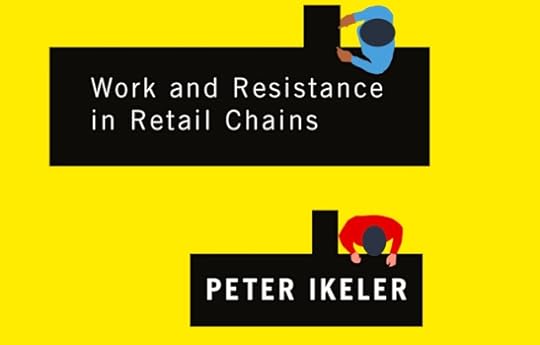 'Sociologist Peter Ikeler examines the precarious nature of retail work in the 21st century - from the effects of anti-union policies on the corporate and state level, to the complications of performing service work between employers and customers - and finds a path to collective action in the teamwork dynamic of retail employment, and the unifying nature of low wages and little bargaining power. Ikeler is the author of
Hard Sell: Work and Resistance in Retail Chains
. -- This Is Hell
'Sociologist Peter Ikeler examines the precarious nature of retail work in the 21st century - from the effects of anti-union policies on the corporate and state level, to the complications of performing service work between employers and customers - and finds a path to collective action in the teamwork dynamic of retail employment, and the unifying nature of low wages and little bargaining power. Ikeler is the author of
Hard Sell: Work and Resistance in Retail Chains
. -- This Is Hell
Published on September 28, 2016 20:36
Whole Foods Opens Store in Chicago 'Food Desert'
 As Whole Foods opens a store in Chicago's Englewood neighborhood -- a so-called food desert -- he glaring question of course is, "how will residents in a place with 21 percent unemployment afford to shop here?" WBEZ's Natalie Y. Moore reports. -- +Marketplace APM
As Whole Foods opens a store in Chicago's Englewood neighborhood -- a so-called food desert -- he glaring question of course is, "how will residents in a place with 21 percent unemployment afford to shop here?" WBEZ's Natalie Y. Moore reports. -- +Marketplace APM
Published on September 28, 2016 09:07
#BettaVote: Duke University Students on "Disrupting the Regular Flow"
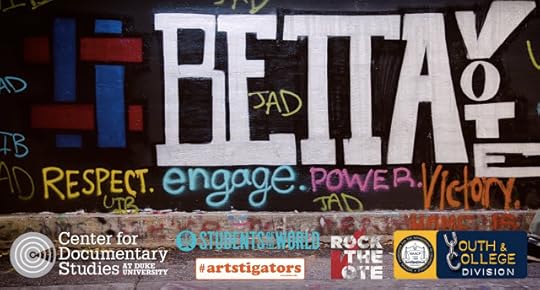 Rock the Vote's new
Rock the Vote's new
Published on September 28, 2016 08:55
What is One Misconception about Black Popular Culture in the Digital Age?
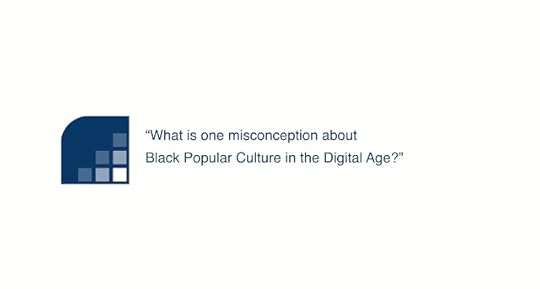 In this clip from the
Duke Council on Race + Ethnicity
(DCORE), Cultural Studies Scholar Mark Anthony Neal, Political Scientist Kerry Haynie and Literary and Legal Scholar Karla FC Holloway discuss the value of Black Popular Culture in the Digital Age.
In this clip from the
Duke Council on Race + Ethnicity
(DCORE), Cultural Studies Scholar Mark Anthony Neal, Political Scientist Kerry Haynie and Literary and Legal Scholar Karla FC Holloway discuss the value of Black Popular Culture in the Digital Age. DCORE: What is one misconception about Black Popular Culture in the Digital Age? from Michael Anthony on Vimeo.
Published on September 28, 2016 08:37
September 27, 2016
How the Internet Normalized Donald Trump and Impacted American Politics
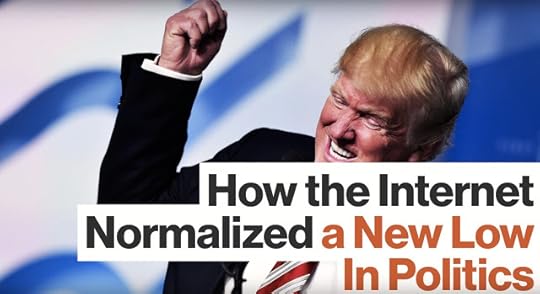 'The distinction between the online world and real life is thinner than we imagine. So when comment trolls run rampant, our national discourse cannot help but be changed. Mary Aiken, author of The Cyber Effect: A Pioneering Cyberpsychologist Explains How Human Behavior Changes Online, suggest "Trump is a troll, who jumped off the internet into the real world." -- +Big Think
'The distinction between the online world and real life is thinner than we imagine. So when comment trolls run rampant, our national discourse cannot help but be changed. Mary Aiken, author of The Cyber Effect: A Pioneering Cyberpsychologist Explains How Human Behavior Changes Online, suggest "Trump is a troll, who jumped off the internet into the real world." -- +Big Think
Published on September 27, 2016 14:47
Mark Anthony Neal's Blog
- Mark Anthony Neal's profile
- 30 followers
Mark Anthony Neal isn't a Goodreads Author
(yet),
but they
do have a blog,
so here are some recent posts imported from
their feed.



